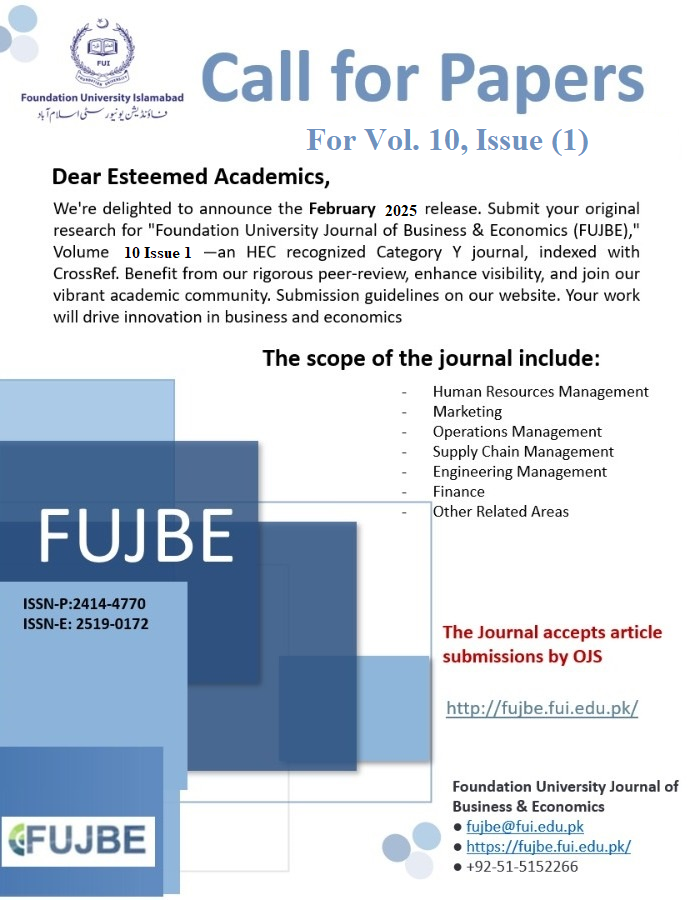Impact of Fintech on The Financial Performance of Pakistani Banking Sector: A Comparative Study of Islamic and Conventional Banks
DOI:
https://doi.org/10.33897/fujbe.v9i2.961Keywords:
FinTech, Financial Performance, Islamic Banking, Conventional Banking, Pakistani Banking SectorAbstract
FinTech is a developing technology which primarily changed the way of banking. The association between banks
and FinTech got the attention of many scholars. In this regard, the present research aimed to investigate the
influence of financial technology on the Pakistani banking sector’s financial performance including both Islamic
and non-Islamic banks for tenure of 5 years comprising of 2018-2022. Four Islamic banks and all the
conventional banks except micro finance banks were chosen as a sample for this study. The analysis of the present
research is grounded on the independent variable Fintech (Internet banking, Mobile banking and ATM
transactions) and the dependent variable financial performance (ROA, ROE and EPS) of both banking systems.
The researcher collected quantitative data as per the quantifiable nature of the study from the yearly statements
of the concerned banks and State Bank of Pakistan website. Linear model regression of panel data was used to
derive the empirical outcomes from the analysis of financial technology and banks’ fiscal performance. The
outcomes of the research resulted that overall Pakistani banking sector’s financial performance was
insignificantly impacted by FinTech with reference to ROA and ROE. But individually fiscal performance of
Islamic banks has been positively influenced by financial technology while insignificant impact on conventional
banks’ financial performance in reference with ROA and ROE. Moreover, the outcomes of the research further
resulted that FinTech has positive significant impact on the financial performance of Pakistani banking sector as
a whole with respect to EPS. Theoretically, the present study added latest information to the existing literature
regarding Pakistani banking sector’s performance in liaison with FinTech. Practically, the present study has
dual implications. From customers’ perspective the use of FinTech services creates easiness for clients to avail
banking services irrespective of the time and place constraints. While from banks’ perspective the use of FinTech
services by customers promotes the agenda of green banking by reducing paperwork in the form of vouchers as
well as improves operational efficiency.



